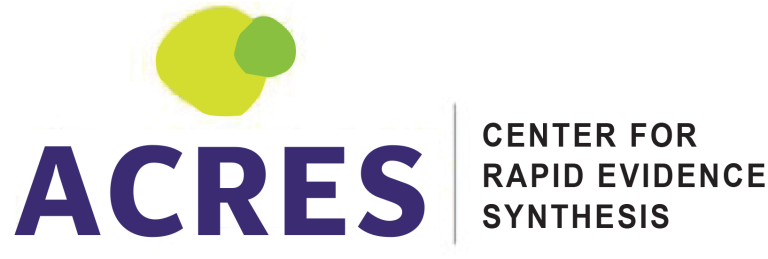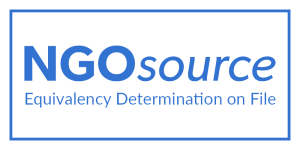Using evidence to improve lives in Uganda
ACRES looked at similar misoprostol distribution programs worldwide but realized the value of locality. They spent time understanding and interpreting local norms, beliefs, and power dynamics, allowing them to reflect how this drug would impact the women who needed it, broader community members who would now have more access, and the government program’s implementation of […]
Evidence to Policy Training Programme graduates inaugural cohort
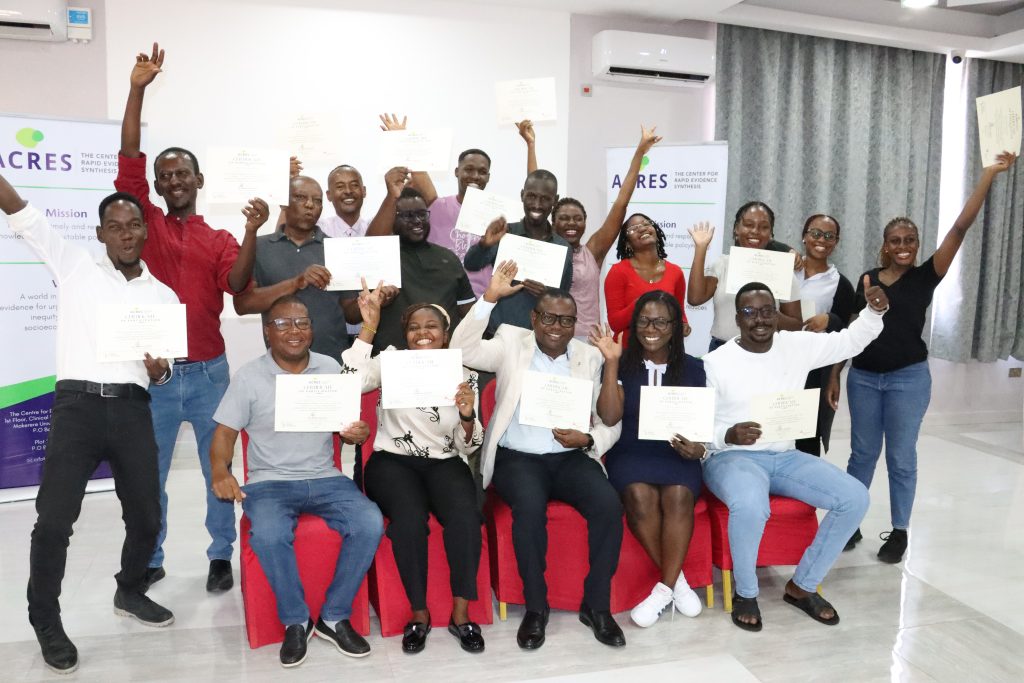
The first cohort of the Evidence to Policy Training Programme – Entry level celebrate the
completion of 15-weeks of study
DESTINY project to revolutionize climate action with AI-powered research

Floods cut off roads and homes in Kampala, Uganda Center for Rapid Evidence Synthesis (ACRES) announces the commencement of the DESTINY project, an international research initiative that will harness the power of artificial intelligence (AI) to combat the climate crisis. This project is driven by a moral obligation to protect people worldwide from the devastating […]
EMPLOYMENT OPPORTUNITY – RESEARCH SCIENTIST (Application deadline extended)

We’re excited to announce that we’re hiring! If you’re passionate, committed to excellence, and eager to make a difference, we want you to join our dynamic team! As a Research Scientist, you’ll have the opportunity to undertake evidence syntheses, policy analyses, research, and evaluation. The applications submission deadline extended to January 02, 2025. […]
Insights from the Digital Gender Inclusive Tools for Evidence Use (DG – Tools) meeting
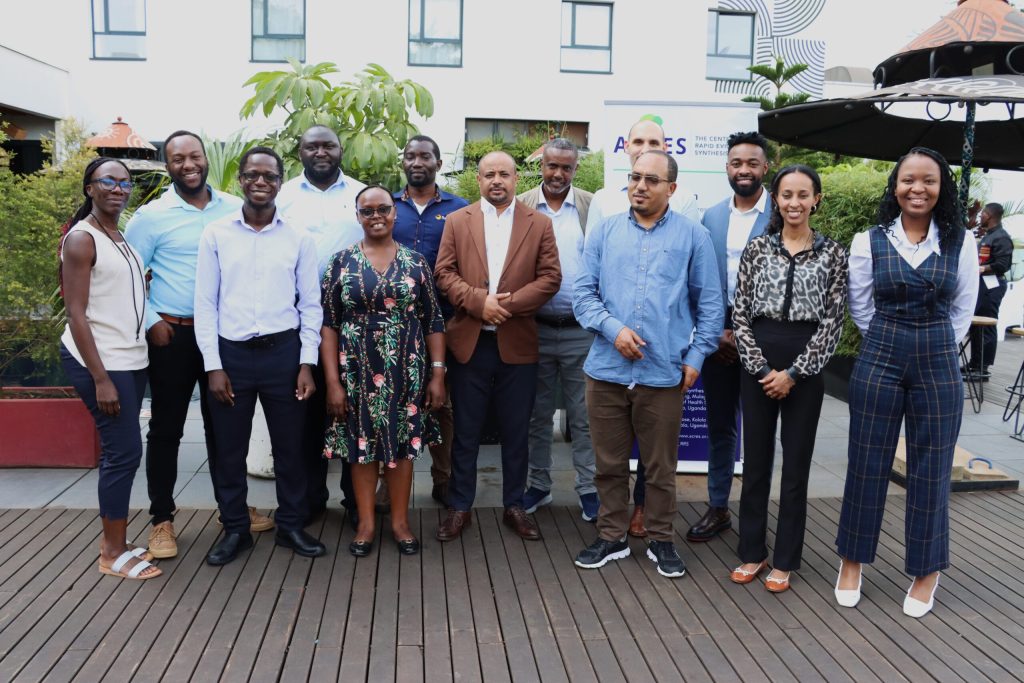
Partners in the implementation of the DG Tools project pose for a group photo following a meeting in Kampala The Digital Gender Inclusive Tools for Evidence Use (DG – Tools) meeting, held from October 14th to 16th, 2024, in Kampala, Uganda brought together experts from ACRES, EPHI, and PACE to discuss the latest advancements […]
Transforming decision-making in Africa: The Evidence for Policy Training Programme
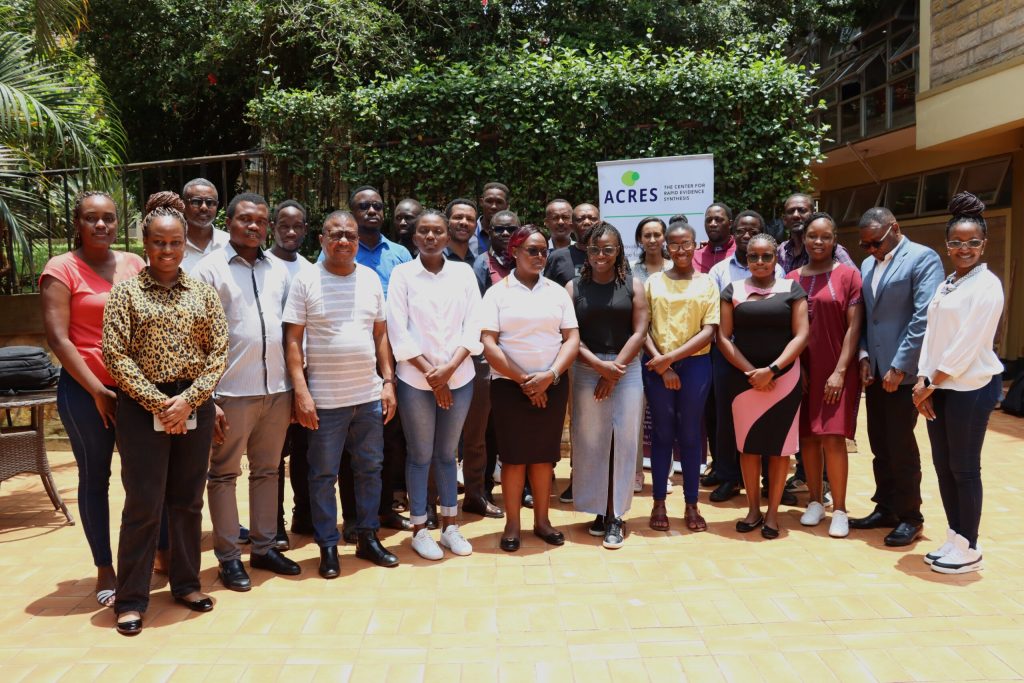
Learners (policy makers and researchers) and tutors pose for a group photo following the launch of the training programme in Kampala Africa is at a critical juncture in its development journey. The continent faces numerous challenges, from climate change and pandemics to economic inequality and social injustice. To address these pressing issues, policymakers and researchers […]
ACRES recognised for contributions to Monitoring & Evaluation
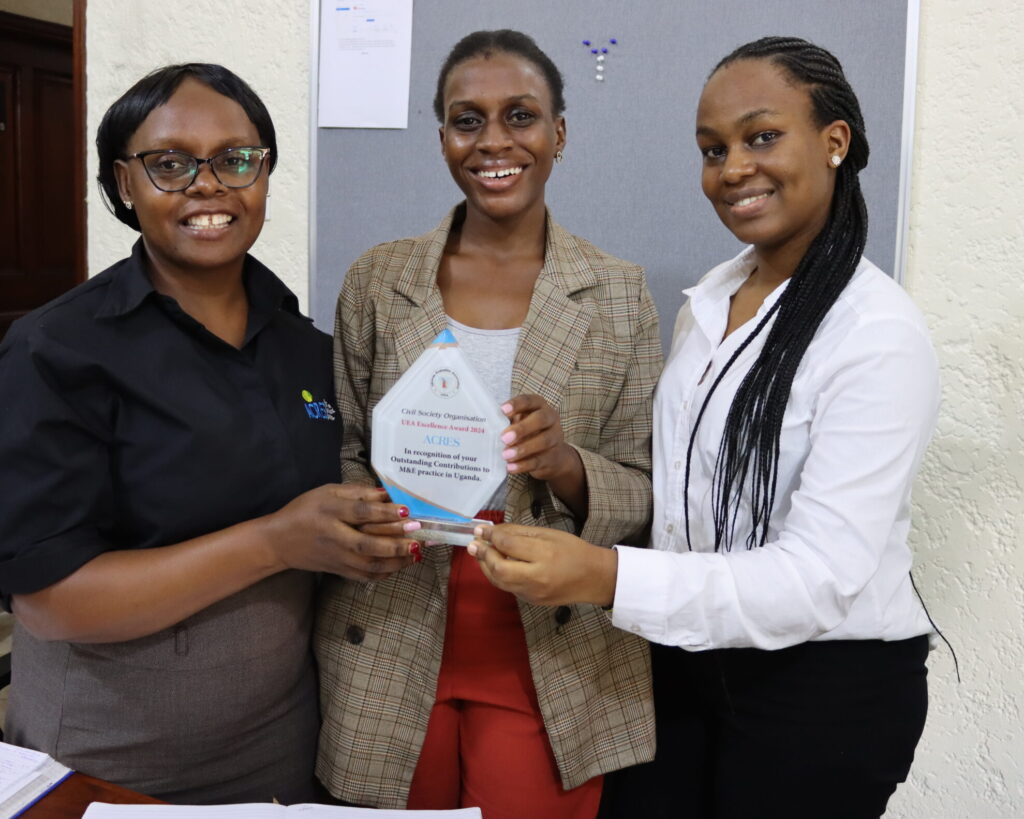
ACRES team members Sarah Nakabira (left), Prisca Auma (center), and Carol Nakalema (right) display the recognition plaque. The Center for Rapid Evidence Synthesis (ACRES) has been recognised with the UEA Excellence Award 2024 in the Civil Society Organisation category. The award, presented during the 8th Uganda Evaluation Week, acknowledges ACRES’s contributions to Monitoring and […]
Africa: the youth employment crisis and the Mastercard Foundation’s response

Africa is the youngest and fastest-growing continent in the world. By 2030, there will be 375 million young people in its job market. However, there is a significant lack of employment opportunities that young people deem dignified and fulfilling. Youth unemployment rates are as high as 65% in South Africa, and 80% in Djibouti. […]
ACRES and NCDC partner to enhance curriculum development with evidence
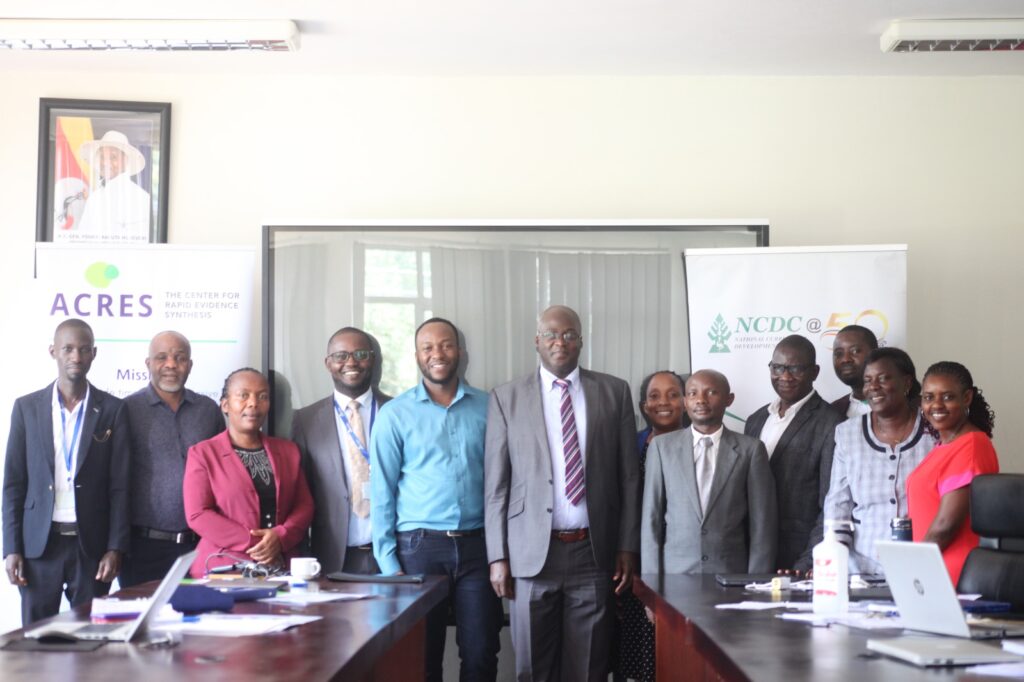
ACRES and NCDC partner to enhance curriculum development with evidence The Center for Rapid Evidence Synthesis (ACRES) recently conducted a one-day training session with the senior management team at the National Curriculum Development Center (NCDC) in Kyambogo as part of efforts to promote Evidence-Influenced Decision Making (EIDM) through capacity building. Dr. Grace Baguma, […]
ACRES and ERI’s Evidence Gap Map to inform natural resources policy
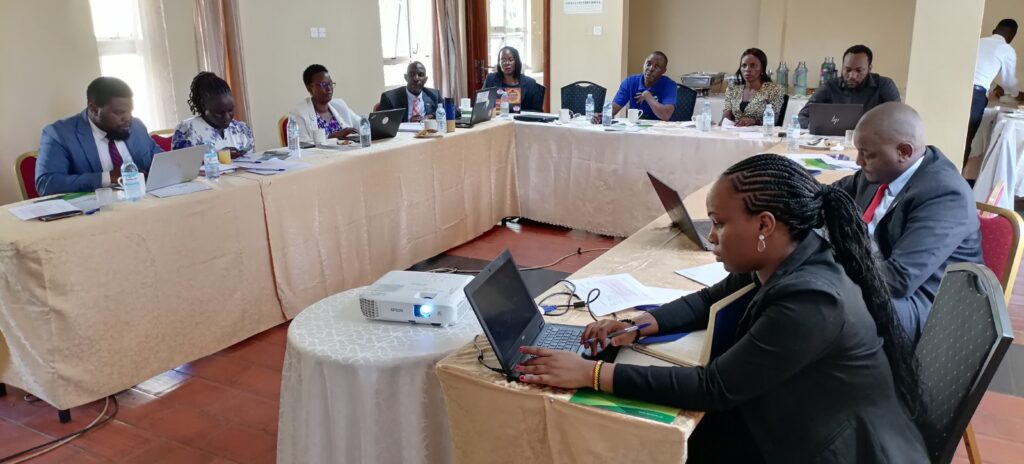
ACRES and ERI’s Evidence Gap Map to inform natural resources policy By Bakari Ssettumba The Center for Rapid Evidence Synthesis (ACRES) and Earth & Rights Initiatives Uganda (ERI) have embarked on an initiative to create an Evidence Gap Map on natural resources degradation in Uganda. This innovative tool aims to inform evidence-driven litigation and […]
